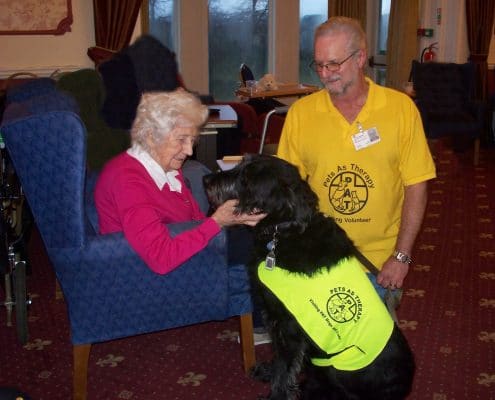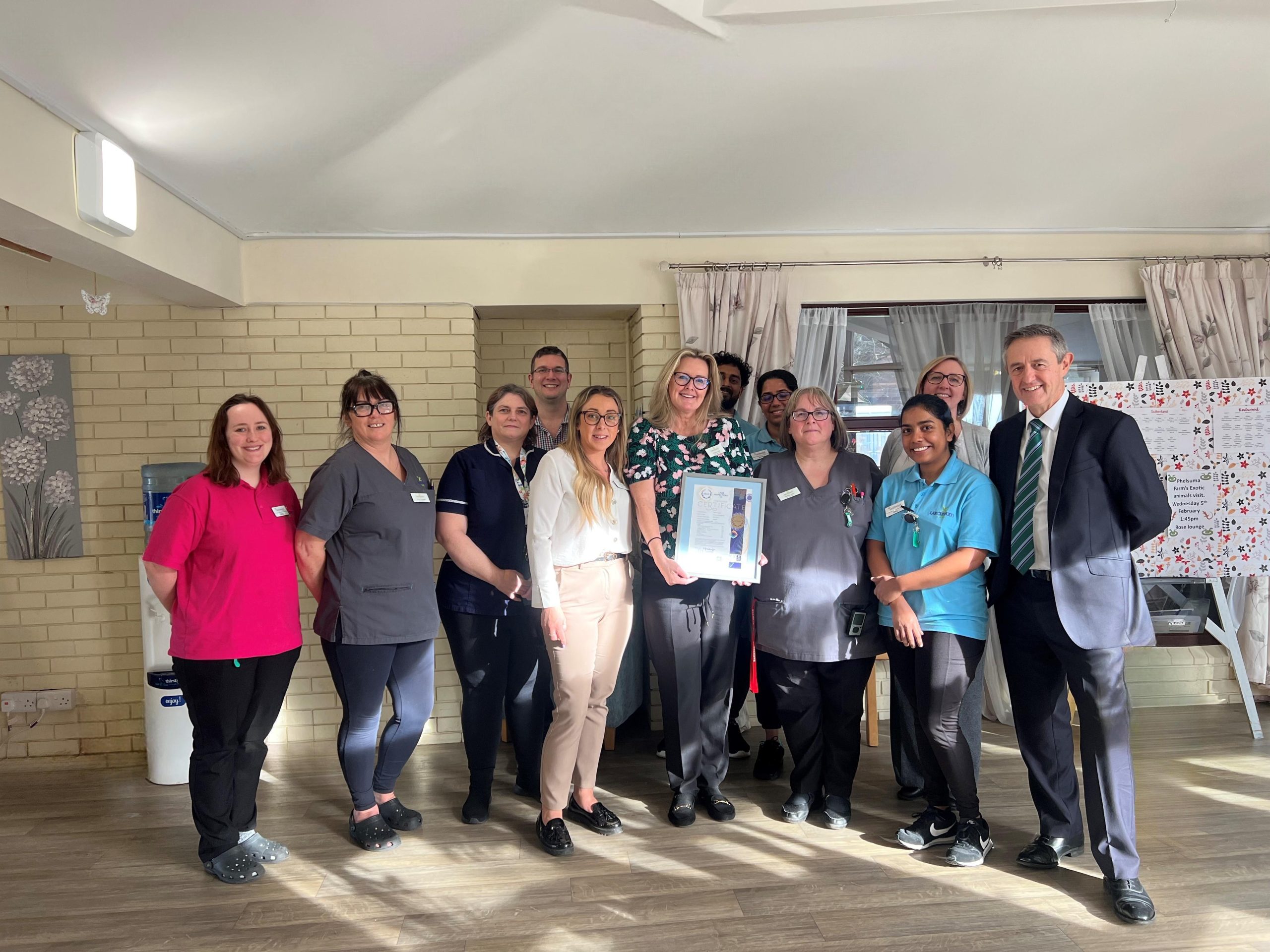[av_heading tag=’h3′ padding=’10’ heading=’The importance of activities – Health Investor’ color=” style=’blockquote modern-quote’ custom_font=” size=” subheading_active=” subheading_size=’15’ custom_class=”][/av_heading]
[av_textblock size=” font_color=” color=”]
 What extra leisure activities would you recommend that care home residents should be offered, specifically designed to increase wellbeing, and how does this help improve morale/lifestyle?
What extra leisure activities would you recommend that care home residents should be offered, specifically designed to increase wellbeing, and how does this help improve morale/lifestyle?
Residents should have as much input as possible into the activities they are offered to help maintain and promote independence and some control over decisions. How to decorate their own room, caring for plants and flowers or engaging with visiting animals such as the fantastic Hen Power project which some of our homes have adopted with great success.
Life histories play an important part in care delivery and involve not only the person being supported within the care environment, but also any relatives or friends. Having a rounded picture of what people like to do in their spare time and used to do during their working day and in their everyday lives helps provide a person centered approach to activities. Activities that engage with their own interests such as gardening, art, music and reading are all excellent examples.
We try to support residents to maintain lifestyles and interests that they had before they moved into a care setting.
A personal plan of relevant activities helps to maintain a resident’s self-worth, confidence and dignity.
How important is it to have extra leisure/wellbeing activities or approaches in care homes versus other important/crucial elements? Why?
Meaningful activity is fundamental to maintaining mental and physical wellbeing and should be a key element of high quality care. It should be integral to providing care and not an added extra.
Providing the opportunity for residents to take part in activities is not only an essential part of current Government policy, it is a crucial need for the person being cared for.
The impact of purposeful activity is important for all residents and particularly for those people living with dementia.
It’s vitally important to have stimulating activities for residents to engage in to ensure that they continue to lead satisfying lives.
How do these activities actually improve residents’ quality of life? How can you measure this?
Supporting people within care homes, especially those living with dementia to be occupied, stimulated and engaged is the best way to maintain their quality of life and can also have many benefits such as improving mood and reducing agitation.
Encouraging reminiscing, conversation and socialising is also important for cognitive stimulation and gentle exercise helps to maintain physical wellbeing.
Everything care homes do must also consider profit and balancing the books. Is adding in lots of wellbeing activities a luxury only self-pay, private homes can have? How do wellbeing schemes work for care homes who may be struggling slightly financially? What options are there?
A programme of meaningful activities is a key part of high quality care and not something that can be monetarised.
Activity provision doesn’t have to mean large extra financial outlay just a change of attitude and culture within the home. For example, it doesn’t cost anything for staff to be regularly communicating (verbal/non-verbal) with every resident. Activity provision doesn’t need to be expensive, but it is ‘priceless’ in terms of benefit to wellbeing.
Simple things like helping staff with small tasks cost nothing but can make a big difference to residents. In addition supporting residents to maintain contact with f
amily and friends through letters, cards, phone calls or mobile devices is important.
Working with residents, families and local people to ensure that the home is an integral part of the community and welcomes visitors, local schools and organisations etc will all help to make the home a vibrant and stimulating place.
Is there a balance to be had between offering leisure activities and making a good profit, and if so, where/how does that balance lie?
Leisure activities are an essential part of good care delivery and should be seen as part of the overall care package not as an extra option to be offered if financially viable.
What advice might you give to a care home that is struggling to balance the books when it comes to improving residents’ quality of life through leisure activities?
Talk to residents, spend time finding out about them and their likes and dislikes, something as simple as helping lay the dinner tables or weeding the flower beds can make a huge difference. Lots of activities don’t cost anything at all just a little time and effort.
Lynn Fearn
Managing Director
Healthcare Management Solutions
Click here to view the original article from Recognition PR
[/av_textblock]
[av_button label=’Back to news’ link=’page,1501′ link_target=” size=’small’ position=’left’ icon_select=’yes’ icon=’ue878′ font=’entypo-fontello’ color=’theme-color’ custom_bg=’#444444′ custom_font=’#ffffff’]



